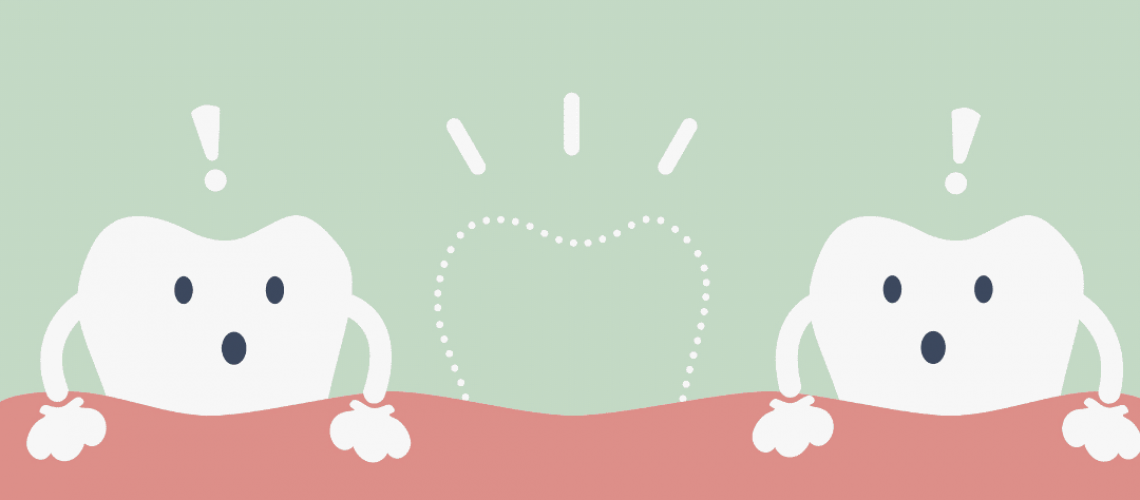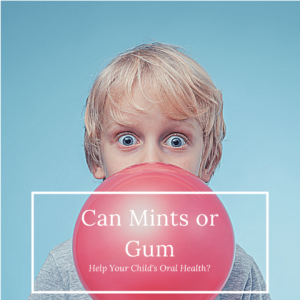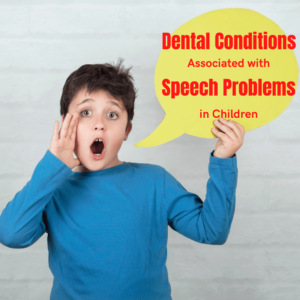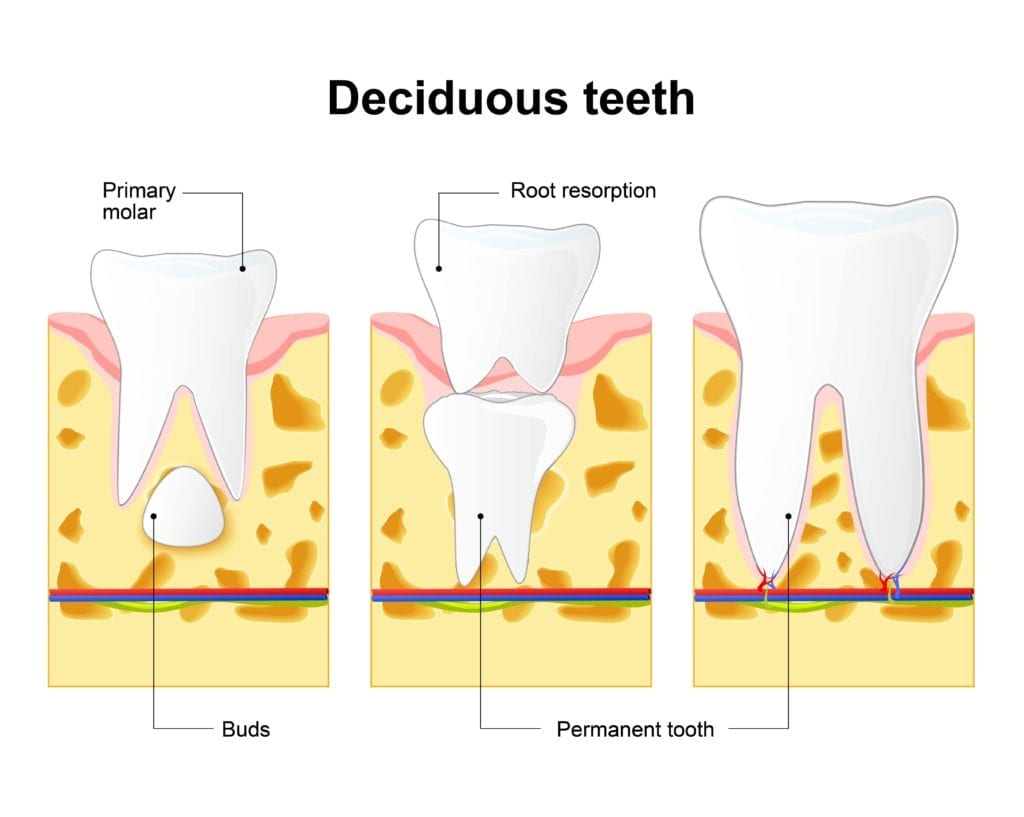
After your child loses a baby tooth, it is generally expected that a permanent tooth should be erupting soon after to fill in the space. When this doesn’t happen, however, you may wonder why your child’s permanent teeth are not erupting. In some cases, there may be no cause for concern, while other cases may require intervention from your child’s pediatric dentist. Nevertheless, it is still important to have your child evaluated by their pediatric dentist if it has been six months or longer since their baby tooth was lost and no permanent teeth have erupted. This can happen for a variety of reasons, including:
A Lack of Space
Permanent teeth are bigger than baby teeth, so they require more space to erupt properly. This additional space is usually provided in the forms of gaps between baby teeth. However, when there are no gaps in between the baby teeth, this can mean that there is not enough space for a permanent tooth to erupt. A lack of space is one of the most common reasons why permanent teeth are unable to erupt.
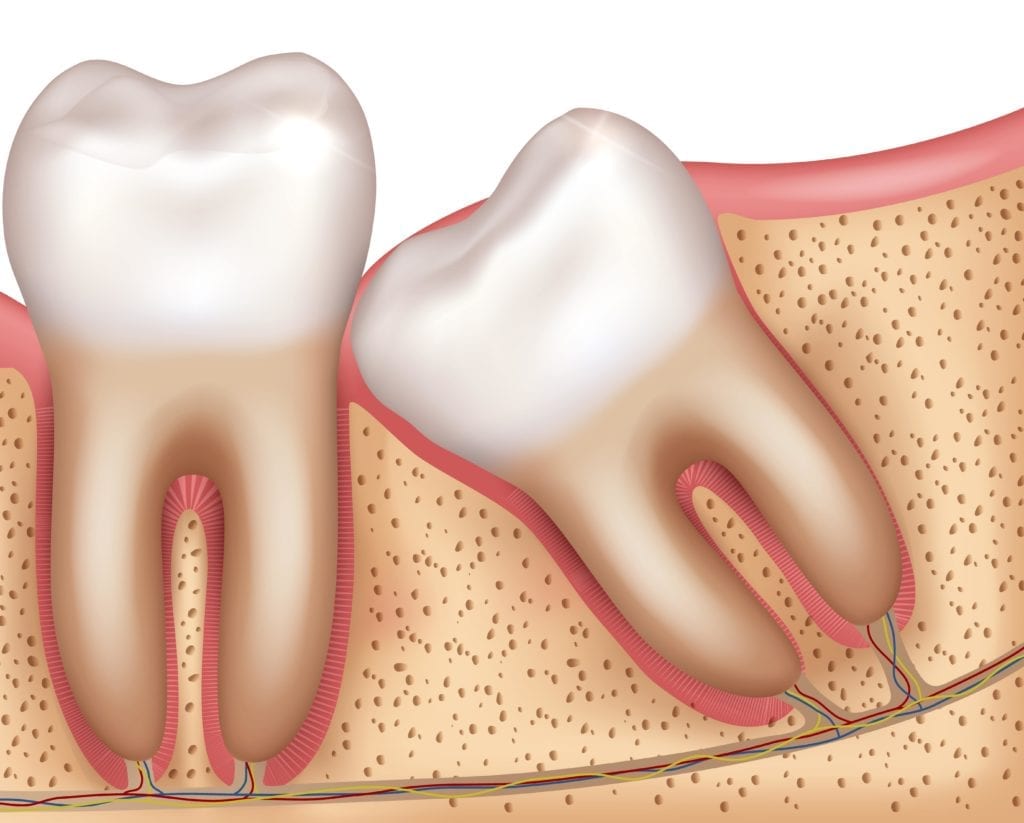
Impaction
Unfortunately, when a permanent tooth is unable to erupt it can become impacted. An impacted tooth is one that has developed entirely below the gum line and is unable to erupt. In addition to a lack of space, impactions can also be the result of narrow jaws or prematurely lost baby teeth. Early orthodontic treatment is usually used to make more space in the mouth and encourage the proper eruption and alignment of the affected tooth.
Improper Growth
Another reason your child’s permanent tooth may not be erupting is because it is growing in the wrong direction. Growing in the wrong direction is especially common in the lower second bicuspids and the upper canines. Luckily, early orthodontic treatment can be used to redirect the tooth’s growth so that it can erupt properly.
Hyperdontia
In rare cases, permanent teeth may not erupt due to a condition called hyperdontia, which is characterized by the development of extra teeth known as supernumerary teeth. Unfortunately, these extra teeth can physically block permanent teeth from erupting and can also cause additional problems such as overcrowding, displacement, and impacted teeth. Hyperdontia is usually treated by extracting the extra teeth and using early orthodontic treatment to control the eruption and alignment of the remaining teeth.
Medical Conditions
The final reason why your child’s permanent teeth may not be erupting is due to certain medical conditions that affect the growth and development of bones such as: fibrous dysplasia, hypothyroidism, rickets, and Down’s syndrome. When permanent teeth are not erupting due to a medical condition, the first course of action is usually to closely monitor the affected tooth for a specified amount of time before making treatment decisions.
As you can see, there are a variety of reasons why your child’s permanent teeth may not be erupting. Therefore, you should take your child to be examined by their pediatric dentist if it has been six months or longer since their baby tooth was lost and there is no sign of a permanent tooth. Additionally, it is also important to have your child evaluated if the permanent teeth appear to be erupting incorrectly. Correcting problems with erupting permanent teeth can help to prevent the need for costly treatments later down the road.


